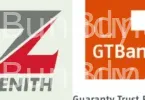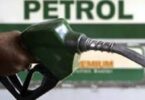Transmission lines in Cross River, Rivers have been vandalized severally in over 2 months – TCN View pictures in App save up to 80% data.
Story Highlights:... CLICK TO READ THE FULL NEWS HERE▶▶
The ongoing petrol scarcity has heightened the demand for PMS production from the Dangote Refinery among industry stakeholders and consumers alike.
Experts suggest that production from the Dangote Refinery, which is anticipated to commence this month, could offer relief to consumers by addressing the supply challenges.
However, there are varying opinions on how the refinery’s operations will influence the price of PMS in the coming months.

The ongoing fuel scarcity has again intensified the demand for Premium Motor Spirit (PMS) production from Dangote Refinery, the world’s largest single-train refinery, drawing attention from both industry stakeholders and consumers.
Despite repeated assurances from the Nigerian National Petroleum Corporation (NNPC) Limited that distribution challenges have been resolved, fuel scarcity and long queues continue to plague key areas in Lagos, Ogun, and Abuja.
Many filling stations remain shut, forcing commercial motorists and private car owners to form long lines at the few outlets that are still operating.
In Ikeja, Maryland, Ikorodu, and other parts of Lagos, petrol prices have soared to as high as N1,000 per liter, intensifying the struggle for fuel.
This troubling trend is also observed in Ogun State and even in the nation’s capital, Abuja.
One frustrated motorist shared with Nairametrics, “Paying N1,000 per liter now feels like the new normal amid this scarcity—if you’re lucky enough to find any.”
The NNPC’s failure to resolve this persistent crisis has further highlighted the urgent need for Dangote Refinery to commence fuel production.
As industry expert and former NERC Chairman, Sam Amadi pointed out, “The core issue is supply. The hope is that once Dangote Refinery is operational, it will finally address these supply shortages.”
NNPC offering political answers
While the national oil company, currently the sole importer of fuel in the country, has repeatedly said that the fuel scarcity is tied to distribution challenges, many believe the answers from NNPC don’t offer much clarity.
Marketers and petrol station operators who spoke with Nairametrics said the issue they are facing is supply, adding that they can’t explain why this is the case.
In a conversation with Nairametrics, Amadi stated that NNPC is only offering a “political answer” rather than a technical one.
According to the energy expert, it is obvious that whatever is causing this crisis has not been resolved by the national oil company.
“NNPC’s claims are not usually reliable. They will always focus on political communication and less on technical solutions. It is obvious that the cause of the scarcity is not resolved.
“It may have to do with logistics of procuring and distributing the product or some artificial hoarding. NNPC is not really trustworthy,” Amadi said.
Mixed reactions from experts as Dangote Refinery sets for September date
Moreover, stakeholders in the industry are now gearing up for the anticipated September launch of petrol production from Dangote Refinery, hoping it could be the much-needed lifeline to end the crisis of long queues and soaring petrol prices.
Nairametrics previously reported that Dangote Refinery is targeting a September start date after multiple delays caused by technical issues and a lack of supply from both the NNPC and international oil companies (IOCs).
For many industry players and experts, Dangote Refinery is seen as the potential silver bullet that could finally resolve the persistent fuel shortage crisis.
However, there are mixed reactions regarding how much Dangote will price his petrol amidst market uncertainty and other influencing factors.
Senior partner at Bloomfield Law and energy expert, Ayodele Oni, expressed cautious optimism about the impact of the 650,000 barrels per day refinery on the price of PMS.
According to him, Dangote Refinery will resolve the logistics problems facing the petroleum industry today. He also observed that the slash in the cost of importation of PMS would translate into a reduction of the products, albeit other prevailing market realities.
“Refining within Nigeria could lead to some changes in fuel pricing. This is because the reduction in logistics costs eliminating the need for large vessels to transport products—may help lower PMS prices.
“However, it’s important to note that a significant portion of PMS pricing is influenced by the international crude oil market,” Oni told Nairametrics.
On his, part, Amadi said while the Dangote refinery might resolve the issues of supply causing the fuel scarcity, he doesn’t think this might result in a significant slash in the price of petrol in the coming months.
He said what the country is certain of is better pricing from Dangote, but this might also be undercut by international market prices.
“If Dangote refinery finally begins to produce it will increase supply. Ordinarily, an increase in supply reduces prices but the price differential that we can enjoy post-Dangote will depend on its own price.
“Dangote says it will sell according to international market price. This makes sense since he has to be competitive. So the price differential may be the size of the associated cost of import. We have some better prices from Dangote depending on the cost of import,” Amadi said.
“We’ve not yet Fixed the Price of Petrol”
Last month, amid speculation from marketers that the refinery may fix its price for N600 per liter, the management of the refinery released a statement declaring that they have not fixed any price they will sell their products.
The spokesperson of Dangote Group, Anthony Chiejina, said the speculation from the marketers does not represent the position of the refinery.
“Our attention has been drawn to headlines announcing “Marketers Project N600/litre for Dangote Petrol” published in Punch Newspapers on Tuesday, August 13, 2024.
“We would like to clarify that the Independent Petroleum Marketers Association of Nigeria (IPMAN) is not our business partner yet.
“We have never discussed the price of Premium Motor Spirit (PMS) with them, and they have no mandate or authority to speak for us, either for good or with hidden transcript.
“We urge the public to desist from such speculative announcements. We have our official channels through which we make our views known to our stakeholders,” Chiejina said.
Meanwhile, industry experts anticipate that Dangote will likely set its petrol price upon commencing distribution this month, following a similar approach to the one used for announcing the diesel price.











